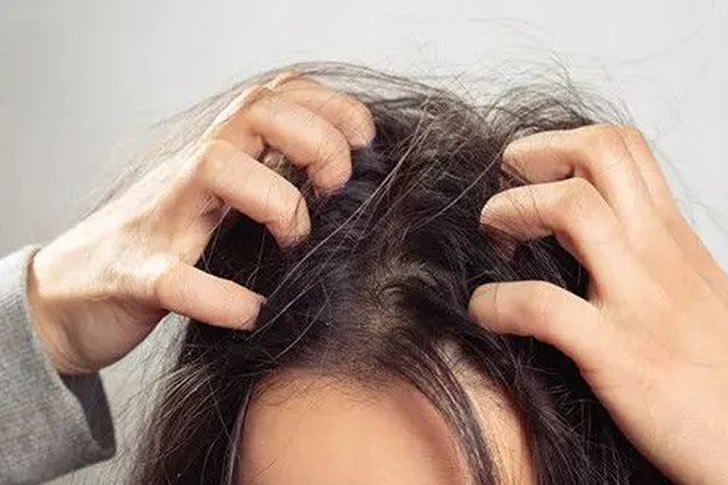What Causes Scalp Psoriasis: It’s Not What You Think
Scalp psoriasis, a common skin condition, affects millions worldwide. Understanding its causes is essential for effective management. Let’s delve into what causes scalp psoriasis and how to manage it.

Understanding Scalp Psoriasis
Scalp psoriasis is a chronic skin condition characterized by red, itchy patches and silver-white scales on the scalp. It’s an autoimmune disorder, meaning the body’s immune system mistakenly attacks healthy skin cells.
Causes of Scalp Psoriasis
Genetic Factors: Genetics play a significant role in the development of scalp psoriasis. If you have a family history of psoriasis, you’re more likely to develop it.
Immune System Dysfunction: Scalp psoriasis is an autoimmune condition. The immune system, which usually protects the body from infections, mistakenly attacks healthy skin cells, causing rapid skin cell production and the formation of scales.
Environmental Triggers: Various environmental factors can trigger or exacerbate scalp psoriasis. These include stress, infections, skin injuries, and certain medications.
Hormonal Changes: Hormonal changes, particularly during puberty and menopause, can trigger or worsen scalp psoriasis.
Lifestyle Factors: Smoking, excessive alcohol consumption, and an unhealthy diet can contribute to the development and severity of scalp psoriasis.
How to Cure Scalp Psoriasis Permanently
While there is no known cure for scalp psoriasis, several treatments can help manage and reduce symptoms:
Topical Treatments: Topical treatments, such as corticosteroids, calcipotriene, and tazarotene, are often prescribed to reduce inflammation and slow down skin cell production.
Phototherapy: Phototherapy involves exposing the skin to ultraviolet light under medical supervision. It can help reduce inflammation and slow the growth of skin cells.
Systemic Treatments: For severe cases, systemic treatments such as methotrexate, cyclosporine, and biologics may be prescribed. These medications work by suppressing the immune system to reduce symptoms.
Lifestyle Changes: Maintaining a healthy lifestyle can help manage scalp psoriasis. This includes eating a balanced diet, exercising regularly, avoiding smoking and excessive alcohol consumption, and managing stress.
How to Remove Psoriasis Scales from Scalp
Removing psoriasis scales from the scalp can help reduce discomfort and improve the effectiveness of treatments:
Salicylic Acid: Over-the-counter products containing salicylic acid can help soften and remove scales.
Coal Tar: Shampoos and creams containing coal tar can help reduce scaling, itching, and inflammation.
Gentle Exfoliation: Gently exfoliating the scalp with a soft brush can help remove scales. Be sure to follow up with a moisturizing treatment to prevent dryness.
What Does Scalp Psoriasis Look Like
Scalp psoriasis can vary in appearance, but common signs include:
- Red patches of skin covered with silver-white scales
- Dry, cracked skin that may bleed
- Itching, burning, or soreness
- Thickened, pitted, or ridged nails
- Temporary hair loss due to excessive scratching or severe inflammation
Home Remedies for Psoriasis
Several home remedies can help manage scalp psoriasis symptoms:
Aloe Vera: Aloe vera gel has anti-inflammatory properties that can help soothe the skin and reduce redness and scaling.
Apple Cider Vinegar: Diluted apple cider vinegar can help relieve itching and reduce scales. Apply it to the scalp and rinse after a few minutes.
Coconut Oil: Coconut oil can help moisturize the scalp and soften scales, making them easier to remove.
Tea Tree Oil: Tea tree oil has anti-inflammatory and antimicrobial properties. Adding a few drops to your shampoo can help manage scalp psoriasis symptoms.
Oatmeal Baths: An oatmeal bath can help soothe irritated skin and reduce itching and inflammation.
Scalp Psoriasis Removal
Effective removal of scalp psoriasis scales and management of symptoms involves a combination of treatments:
Medicated Shampoos: Using shampoos containing ingredients like coal tar, salicylic acid, or ketoconazole can help reduce scales and inflammation.
Moisturizing Treatments: Keeping the scalp moisturized is crucial for managing dryness and reducing scaling.
Regular Scalp Care: Gentle, regular scalp care can help prevent the buildup of scales. Avoid scratching or picking at the scales, as this can worsen the condition.
How to Get Rid of Scalp Psoriasis
Getting rid of scalp psoriasis involves a multi-faceted approach:
Follow Your Treatment Plan: Adhering to your prescribed treatment plan is essential for managing symptoms and preventing flare-ups.
Manage Stress: Stress can trigger or worsen scalp psoriasis. Practice stress-reducing techniques such as meditation, yoga, or deep breathing exercises.
Maintain a Healthy Lifestyle: A healthy diet, regular exercise, and avoiding smoking and excessive alcohol consumption can help manage symptoms.
Stay Informed: Keep up-to-date with the latest treatments and research on scalp psoriasis to find new ways to manage your condition effectively.
Conclusion
Scalp psoriasis is a complex condition with no single cause or cure. However, understanding its underlying factors and exploring various treatment options can help manage symptoms and improve your quality of life. From medical treatments to home remedies and lifestyle changes, there are many ways to keep scalp psoriasis under control and reduce its impact on your daily life.







Recent Comments